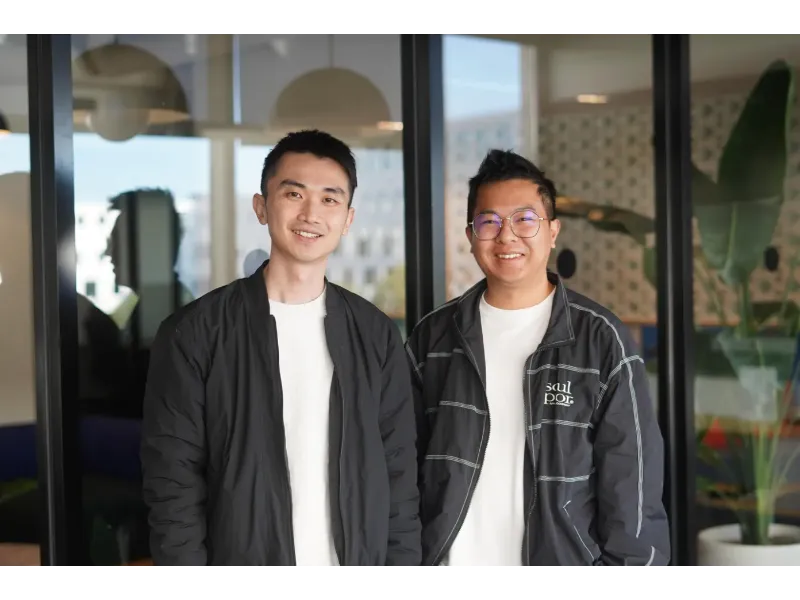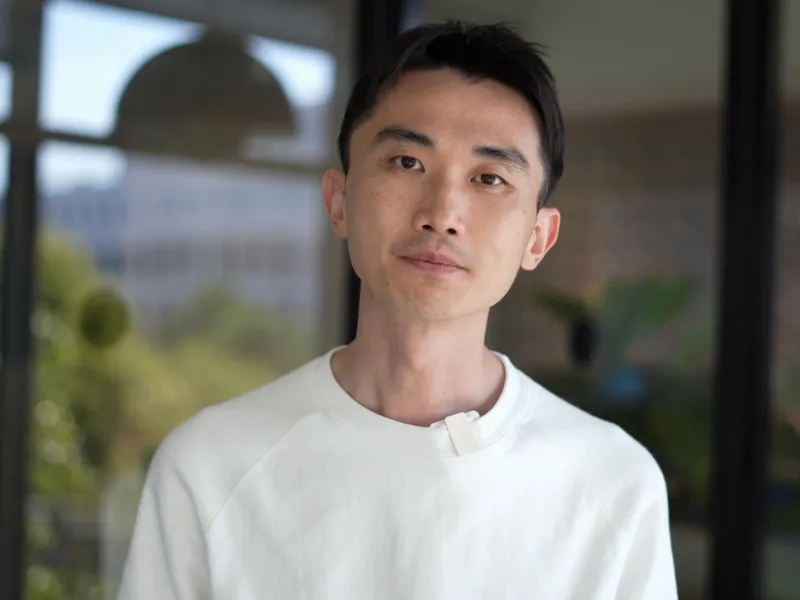- Joshua Xu, a tech innovator with a strong background in advertising technology and machine learning, transitioned from Snapchat to co-founding HeyGen, a company focused on using AI for visual storytelling.
- HeyGen’s digital human creation feature has gained significant attention for its ability to create realistic digital humans, leading to widespread adoption in AI cloning businesses in China.
- HeyGen has successfully attracted substantial investment in the AI sector, with a total funding of over $59 million and recent rounds led by renowned investors.
Joshua Xu‘s journey from his impactful role at Snapchat to his current position as co-founder and CEO of HeyGen showcases a remarkable evolution in his career. With a background in Computer Science and a wealth of experience in advertising technology, Joshua’s contributions have been instrumental in driving HeyGen’s innovative approach to visual storytelling and content creation in the realm of AI technology.
Joshua Xu: from Snapshot to HeyGen
Joshua Xu is the co-founder and CEO of HeyGen. He holds a master’s degree in Computer Science from Carnegie Mellon University and a bachelor’s degree in Automation from Tongji University. As one of the first 100 employees at Snapchat, Joshua was the No. 2 engineer in the Advertising Division and a core technology leader. During his tenure, he played a crucial role in building Snapchat’s advertising platform, recommendation algorithm system, and the billion-scale data machine learning platform, Barista, from scratch. He also led the technical and product development of the AI Camera.
Also read: Who is Liran Zvibel? CEO of WEKA was an Israeli soldier, now battles data workloads
Since November 2020, Joshua has worked at HeyGen, based in Los Angeles, California. Prior to this role, he worked at Snapchat for over six years as a software engineer. He was the third engineer in the Monetisation team and the first engineer in Ads Ranking. Joshua’s expertise spans advertising technology, including infrastructure, pacing, optimisation, data processing, ranking, and recommendation. He is also the creator of Snap’s machine learning platform, Barista, and has extensive experience in computational photography and camera technology.
HeyGen: enabling users to complete content creation at lower costs
HeyGen, founded in November 2020, was originally named Surreal. It was co-founded by Joshua Xu and his Tongji University alumnus, former ByteDance product designer Wayne Liang. Sequoia Capital China and ZhenFund are among its key investors.

According to Joshua Xu, the company was named “Surreal” (Chinese pronunciation “shiyun”) because the founding team all liked Cixin Liu’s science fiction novel “The Cloud of Poem” (Chinese pronunciation “shiyun”). They agree with the novel’s idea that “human artistic creativity cannot be replaced by machines and algorithms”. They also think machines and algorithms can help humans work faster, letting people focus more on creating. The company’s goal is to “use AI to make content, helping users finish content creation at lower costs”.
Ultimately, I think our vision for the company is to build a video engine for everybody so that. Every time you have a new idea, you can use video to visualise that, and that can communicate better.
Joshua Xu
At its inception, HeyGen focused on developing character image generation technologies and attempted to bring these to market. The company initially targeted the advertising and e-commerce sectors with the launch of the AI model face-swapping platform, which can translate the text and speech of models in merchants’ advertisement images and videos, adjust the lip movements accordingly, and even change the models’ appearances to suit cultural and aesthetic preferences around the world, helping advertisers and merchants achieve higher conversion rates.
In August 2021, HeyGen announced that it was developing the content generation engine Surreal Engine, with core technologies including deep learning, natural language understanding, and 3D modelling. HeyGen claims that Surreal Engine is a multi-modal generator that can break down content generation into three steps: understanding, framing, and rendering, achieving seamless transitions between text, speech, images, videos, 3D content, and virtual content.
However, these products did not make a significant impact in the market until September 2022, when the company’s latest AI video generation tool gained public attention for its ability to produce “digital human” effects.
Also read: Who is Aetna Wun Trombley? CEO, board member of Lycia Therapeutics is a relentless innovator
HeyGen’s digital human creation feature gains public attention
The company primarily promotes its digital human creation feature, where users can create a digital human identical to the real person in a video by simply uploading a two-minute clip. Users can also adjust gestures, facial expressions, and lip movements to fine-tune the “subtle body language”.
As an AI-sposed person that you can just use text or audio to drive it and it can speak more than 40 different languages. So in that way, we help to reduce a lot of the cost of content creation and people can actually be unlocked to do a lot more video marketing content in the different social platforms.
Joshua Xu
HeyGen’s highly realistic effects have made it a mainstream tool for “AI cloning” businesses in China. According to a report by Beijing Business Today, some individuals specifically use HeyGen to clone celebrities or influencers for promotions and paid services, thereby making a profit.
HeyGen’s AI Video Translator can easily localise video ads by automatically translating scripts, matching voices, and synchronising lip movements.
Another tool is Avatar 2.0. HeyGen claims this is a groundbreaking development that redefines the landscape of personalised video creation. This feature allows users to create high-quality avatars within five minutes using a mobile device or laptop.
Additionally, HeyGen’s Personalised Video Generator enables users to create custom video messages for potential customers and clients. Users can tailor each video to individual recipients within minutes.
On March 21st of this year, HeyGen was updated to version 5.0. This latest version includes comprehensive upgrades to the user interface, video editing capabilities, and real-time chat functions to meet the demand for efficient and intelligent tools.
In Joshua’s view, as major internet giants are vigorously building their virtual content ecosystems, a fully immersive digital world is indeed becoming increasingly closer to reality. Consequently, the content economy is likely to face a state of demand exceeding supply.
HeyGen gains favour with investors in the AI sector
HeyGen got a lot of attention from investors in the AI field and raised over $59 million so far.
On March 2, 2021, HeyGen said it got angel investment from Sequoia China Seed Fund and ZhenFund, raising several million USD. The money was used to help clients make images and videos with content generation technology.
On August 30, 2021, HeyGen said it raised several million USD in a Pre-A round, led by IDG Capital, with extra investment from Sequoia China Seed Fund and ZhenFund. The funds were used for technology development, product updates, and market growth.
On November 29, 2023, HeyGen said it got $5.6 million in venture capital from Sarah Guo’s Conviction Partners. The company was valued at $75 million. Sarah Guo replaced Sequoia China on the board.
In March 2024, HeyGen got $60 million (about 430 million RMB) in funding from Benchmark.
Since 2023, HeyGen has been reducing its Chinese investor presence. On December 11, the Chinese entity applied for deregistration, and the company focused on the U.S. market.
An AI video insider said the low technical barriers and high competition in China may explain HeyGen’s move overseas. “The technical level is not high; the key is operations. The Chinese market is competitive, with other projects doing well.”
Reports say HeyGen wants better access to foreign customers, avoid government pressure, and cut costs on labour, transport, and taxes.
Joshua said, “We know our investors, users, and data centres well, so government influence does not affect us.”
HeyGen said it will not allow its technology to be used for political campaigns or lobbying.

